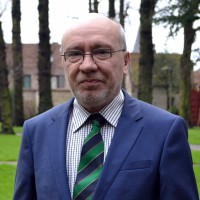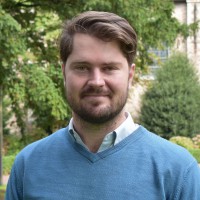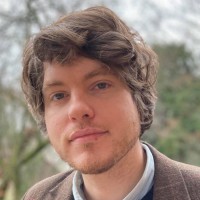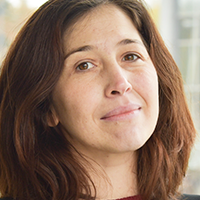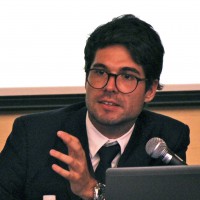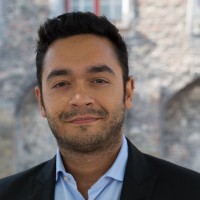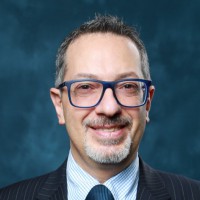Unit on Non-Traditional Diplomacy (UNTRAD)

Diplomacy in its traditional sense refers to the practice of states interacting with other states to acquire information and advance foreign policy objectives. While this is still a vital component of international relations, diplomacy has acquired much broader – or non-traditional – connotations.
First, the ever-expanding constellation of non-state actors is growing increasingly influential on the global stage, eroding the primacy of the Westphalian system in the field of international relations. For example, subnational regions, supranational organizations, and multilateral institutions increasingly deploy diplomatic envoys, while on the other hand, some states have started establishing diplomatic missions to non-state entities, like Silicon Valley. Traditional diplomats – the ones accredited to national MFAs – now often face disadvantages in fulfilling their objectives if they disregard actors from the multi-track dimension of diplomacy: NGOs, businesses, peace activists, religious organizations, academic and research institutions, media companies, and even private citizens.
Second, whereas traditional diplomacy was predominantly a tool for states to construct alliances or secure trade routes with other states, non-traditional diplomacy is an umbrella term covering much wider scope of collaboration. Since the end of the Second World War, science diplomacy, public diplomacy, cultural diplomacy, health diplomacy, etc., have facilitated new forums of international collaboration that complement the traditional ones. What these practices have in common is that they do not deal directly with issues of ”hard power”, but rather the cultivation of “soft power”, which in turn helps the objectives of traditional diplomacy.
Third, the nature of diplomatic actions has been disrupted by the processes of digitization and globalization. Communication across the world has mushroomed and knowledge management is becoming a crucial part of diplomatic actions. Furthermore, the COVID-19 pandemic’s disruption of the face-to-face meetings, standard to diplomatic protocol, has only widened the parameters of digital diplomacy. Meanwhile, globalisation has allowed like-minded people and organizations from around the world to collaborate on global issues, often sidestepping traditional diplomatic channels.
These are but some of the emerging factors that traditional diplomacy operates next to. As the world grows increasingly complex due to the proliferation of borderless challenges, the field of non-traditional diplomacy helps uncover trends in and tools for a more robust, inclusive, and pragmatic practice of international relations.
About UNTRAD
UNTRAD (the Unit on Non-Traditional Diplomacy) was founded in 2021 following a growing consensus that the trends mentioned above deserve a unit dedicated to their study. It brings together academics, practitioners, and students from UNU-CRIS, the VUB Brussels School of Governance, and Ghent University to conduct research and training projects, together with scholars and students from all corners of the world. UNTRAD is based at UNU-CRIS in Bruges, but also operates as a virtual group.
Mission
UNTRAD, which builds upon the legacy of the EL-CSID Horizon 2020 project, will examine the shifts in the practice of diplomacy, and in the process, aim to uncover new areas in which non-traditional diplomacy may help mitigate the challenges of the 21st century. During the start-up phase, the focus will predominantly be upon science diplomacy and cultural diplomacy. Paradiplomacy will also be on the radar.
Current Streams of Research
- Conceptualising diplomacy conducted beyond the state-to-state level and assessing its utility in addressing challenges of the 21st century
- Constructing a more robust academic capacity for the study of science diplomacy
- Building a scholarly basis for understanding the mechanisms of NTD and its relation to IRT
- Comparing different styles and forms of NTD in world regions
- Identifying common ground amongst different forms of NTD, including – inter alia – science diplomacy, public diplomacy, digital diplomacy, and cultural diplomacy
- Tracing the historical developments of different forms of NTD
- Forging tools for building awareness and capacity
Projects
Conceptualising Science Diplomacy
- Project aims to contribute to the theoretical underpinning of SD as a practice and a policy concern
- Scientific Coordinator: Luk Van Langenhove
- Project Researchers: all of UNTRAD
- Funding: TBA
Developing a Positioning Theory Framework of Analysis for Science Diplomacy
- Project that investigates what PT can offer as an analytical tool to the study of SD
- Scientific Coordinator: Luk Van Langenhove
- Project Researchers: Ivy Yang, Ma Zonglyu, Eric Piaget, Stephen Klose
- Funding: TBA
Comparing the Europe and China’s Science Diplomacy: With a Focus on International Astronomy Cooperation
- PhD Fellow: Zonglyu Ma
- Promotor: Luk Van Langenhove
- Funding: CSC (China Scholarship Council) Scholarships
- 15 October 2020 - 15 October 2024
Completed Projects
The EU's Positioning in the US-China Artificial Intelligence Rivalry in Light of Broader Geopolitical Tensions
- PhD Fellow: Ivy Yang
- Promotor: University of Warwick Department of Politics and International Studies
- Funding: Warwick PAIS Scholarship
International Research Cooperation in The Context of the Development of Academic Work - Opportunities for Citizen Science in the Field of Neurosciences
- Visiting Research Fellow: Pasi Hirvonen
- Promotors: Luk Van Langenhove and Päivi Eriksson (University of Eastern Finland)
- Funding: The Finnish Work Environment Fund, University of Eastern Finland
- 1 January 2022 - 31 December 2022
Science Diplomacy Training for the Armenian Diplomatic School
- Scientific Coordinator: Luk Van Langenhove
- Project Researchers: Eric Piaget and Ivy Yang
- Funding: Armenian MFA
- 7 – 8 June 2021
El CSID: European Leadership in Culture, Science and Innovation Diplomacy
- Scientific Coordinator: Luk Van Langenhove
- Project Researchers: Richard Higgott, Léonie Maes, Elke Boers and Riccardo Trobbiani
- Partners: Vrije Universiteit Brussel, The University of Warwick, Wissenschaftszentrum Berlin für Sozialforschung, The Euro-Mediterranean University, The Centre d’Etudes Diplomatiques et Stratégiques, the Joint Institute for Innovation Policy, The Graduate School of Public Policy at Nazarbayev University and The National University of Singapore.
- Funding: European Commission, Horizon 2020, March 2016 – February 2019
- http://cris.unu.edu/european-leadership-culture-science-and-innovation-diplomacy-el-csid

